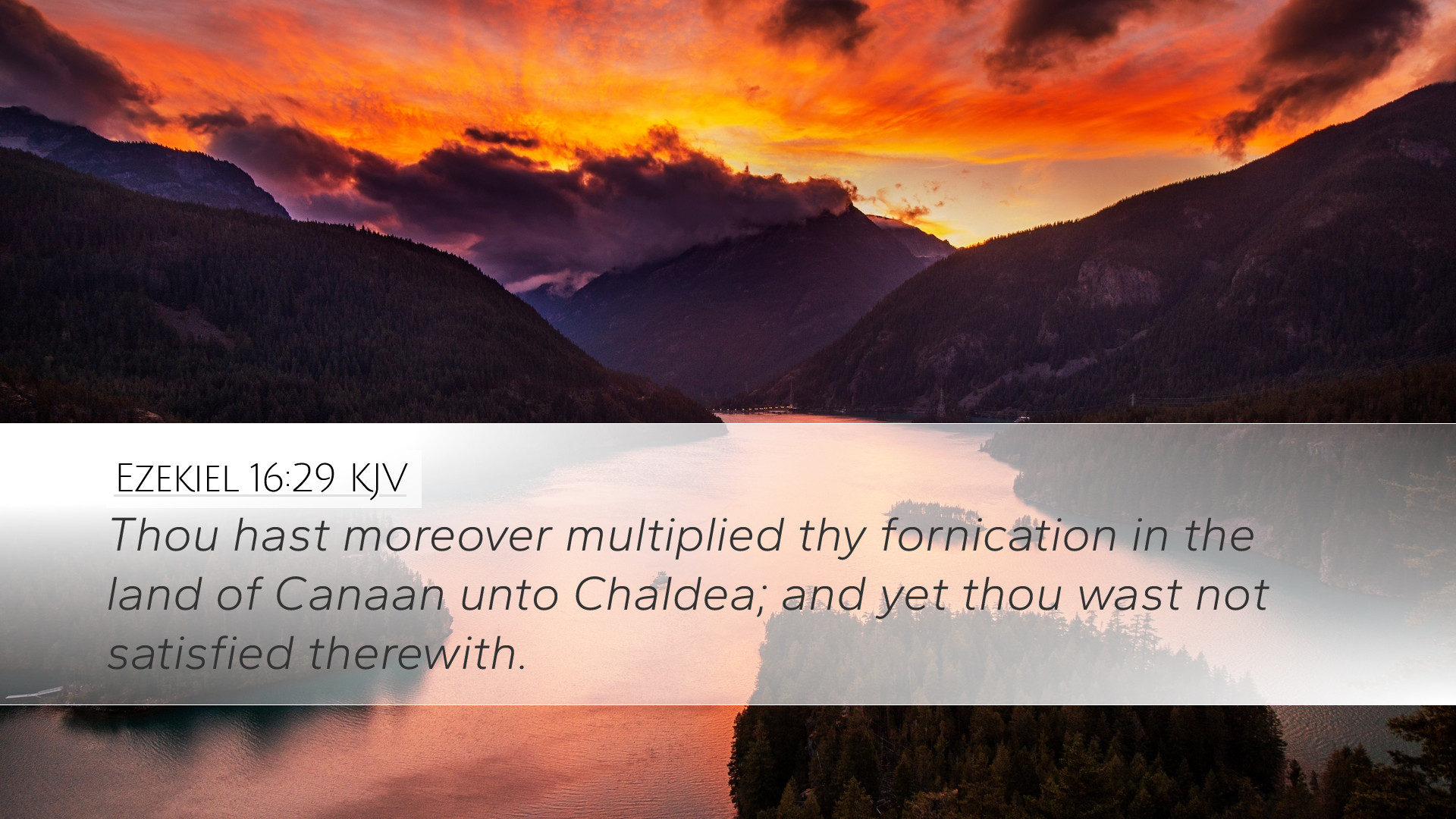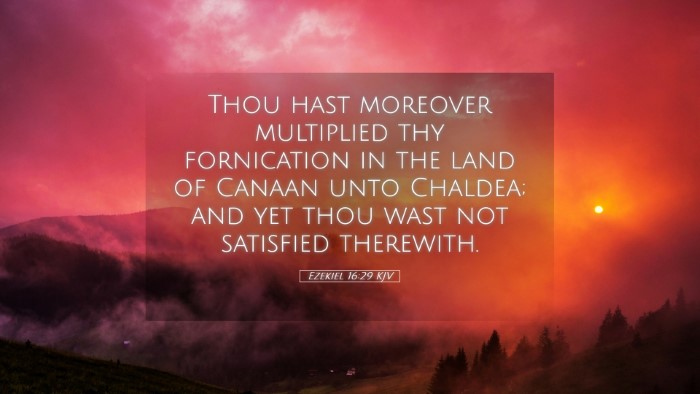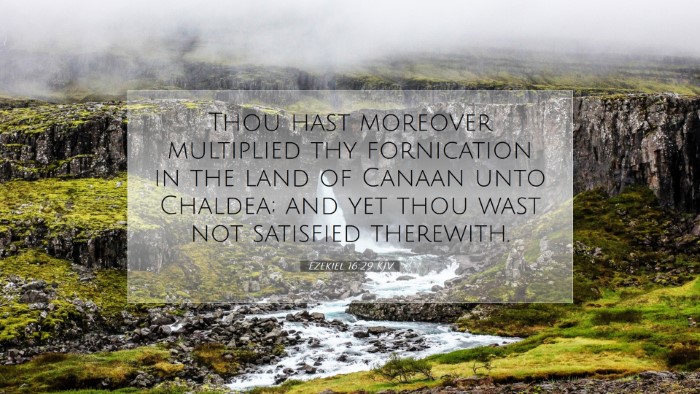Ezekiel 16:29 Commentary
Bible Verse: "And thou hast multiplied thy whoredoms in the land of Canaan unto Chaldea; and yet thou wast not satisfied herewith."
Introduction
The verse of Ezekiel 16:29 serves as a stark reminder of the unfaithfulness of Israel in the eyes of God. Through the metaphor of a bride turning to harlotry, God illustrates not only the spiritual infidelity of His people but also their insatiable desire for worldly alliances and pleasures. This commentary aims to unpack the nuance and weight of this scripture, drawing from established public domain commentaries by Matthew Henry, Albert Barnes, and Adam Clarke.
Contextual Background
To fully grasp the implications of Ezekiel 16:29, one must consider the broader context of Ezekiel's prophetic ministry. The book of Ezekiel was written during a time of severe consequence for the nation of Israel, namely during the Babylonian Exile. The Israelites were facing the judgment of God for their idolatry and disobedience, which had led them to seek after nations like Babylon (Chaldea) rather than relying on the Lord.
Historical Setting
Henry notes that Ezekiel, a priest and prophet, used vivid imagery to depict Israel’s moral failure. The land of Canaan, rich in promise, became a place where the people engaged in idolatrous practices, drawing the ire of God. The reference to Chaldea indicates not just a geographical shift but also a relational betrayal of God’s covenant.
Thematic Analysis
This verse encapsulates several themes relevant to both ancient Israel and contemporary readers.
1. Spiritual Adultery
Like a spouse who betrays their partner, Israel displayed disloyalty to God. Adam Clarke emphasizes the gravity of this betrayal, discussing how whoredoms symbolically represent idolatry and the turning away from covenant faithfulness. The people of Israel sought fulfillment in worshiping foreign gods, reflecting a deep-rooted problem of the heart.
2. Insatiable Desire
Despite their numerous acts of idolatry, the verse highlights an important point: “yet thou wast not satisfied herewith.” Albert Barnes comments on the insatiable nature of sin. No amount of indulgence in false worship could satiate the hunger that stems from spiritual disconnection from God. This behavior mirrors the human condition today—constantly searching for meaning and satisfaction outside of divine relationship.
3. Judgment and Consequence
The behavior described in the verse inevitably invites judgment. Henry observes that God's displeasure becomes evident through the eventual fall of Jerusalem and the exile of the Israelites. The warnings in Ezekiel serve as a sober reminder that persistent rebellion against God leads to dire consequences.
Comparative Insights
In examining this scripture, it is beneficial to draw comparisons with other passages. For instance, the prophetic messages in Jeremiah often echo similar themes of Israel’s unfaithfulness and the divine call to repentance. The recurring motif of infidelity serves not just as a reminder of Israel's past but also provides a cautionary tale for the modern church.
Application for the Church Today
The implications of Ezekiel 16:29 transcend the boundaries of history. The same temptations that led Israel astray are present in today's world. How often do believers seek satisfaction in worldly pursuits rather than resting in the sufficiency of Christ? The church must heed the warnings of this scripture by examining her own fidelity to Christ.
- Call to Faithfulness: Just as the Israelites were called to forsake idols, the contemporary church is commanded to maintain its devotion to the Lord.
- Awareness of Idolatry: Believers must vigilantly identify modern idols that seek to draw their affections away from God.
- Emphasis on Repentance: A genuine spirit of repentance is necessary for restoration and renewal, echoing the heart of the Gospel.
Conclusion
Ezekiel 16:29 serves as a foundational scripture for understanding the gravity of spiritual unfaithfulness. As the people of Israel engaged in whoredoms, they displayed a heart that was never satisfied, leading to catastrophic consequences. The insights from Matthew Henry, Albert Barnes, and Adam Clarke create a rich tapestry of meaning that is relevant for pastors, students, theologians, and scholars alike. It challenges the reader to resolve to be faithful in their covenant relationship with God, drawing daily strength from Him alone.


